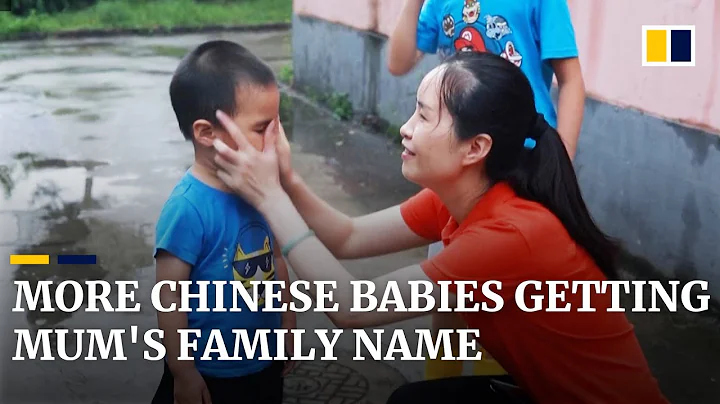Children in Japan all have toys. Parents, relatives and friends give children dolls and other toys, some made by themselves and some bought. The poor almost do it themselves without spending any money. Young children use dolls and other toys to play games, such as setting up a house, being a bride, celebrating festivals, etc. Debate before playing: What do adults do? Sometimes if the argument doesn't stop, I ask my mother to make the decision. When the children quarreled, the mother would say: "Noble people have great tolerance" and persuade the older children to be patient. A commonly used saying is: "The loser takes advantage", which means that if you give the toy to the child first, and after a while, he gets tired of playing with it and wants to play with something else, the toy is still yours. A three-year-old child can quickly understand what mother means. Or, when playing the master-servant game, the mother will let the older children be the servants, saying that everyone is happy and you have fun too. In Japanese life, this principle of "the loser takes advantage" is widely respected even after adulthood.
In addition to admonishment and ridicule, another important method used by the Japanese to discipline their children is to divert their children's attention. Even giving children candy at any time is considered one of the ways to divert their attention. As the child approaches school age, various "treatments" are used. If the child has a bad temper, is extremely disobedient, likes to make noise, and cannot be controlled, the mother will take them to a shrine or temple. My mother's attitude was "let's ask gods and Buddhas for treatment." Most occasions amount to a nice outing. The priest or monk who performed the treatment had a serious conversation with the child, asking about the child's birthday and his bad habits. Then he retired to the back room to pray, and then came back to announce that he was cured. Sometimes it is said that children are naughty because they have bugs in their stomachs. So he made the child annointed, cleaned out the bugs, and sent him home. The Japanese say this method is "short-term effective." Also considered a "good medicine". Putting a small cone-shaped container filled with dried moxa powder on the child's skin and lighting it on fire is called "moxibustion". The scars remain on the body for a lifetime. Moxibustion is an ancient and popular therapy in East Asia. Japan also has this tradition, using it to treat various illnesses. Moxibustion can also cure bad temper and stubbornness. This is how children as young as six or seven receive "treatment" from their mothers or grandmothers. Incurable diseases may even require a second treatment. But it’s rarely necessary to “cure” a child’s naughty behavior three times. Moxibustion is not a punishment. It is not a punishment as Americans say, "If you do this, I will beat you!" But the pain of moxibustion is far worse than being beaten, so the children understand that they cannot be naughty, otherwise they will be punished.
In addition to the above-mentioned various methods of dealing with naughty children, there are also many habits to cultivate children with necessary physical skills. They strongly emphasize that teachers should teach children how to move step by step, and children must imitate them honestly. Before the age of two, the father asked the child to sit cross-legged, with the legs crossed and the insteps touching the floor. At first it is difficult for the child to keep from lying on his back. In particular, one of the key points of sitting upright is to emphasize that the body must be stable and cannot move or change posture. The Japanese say that the secret to mastering sitting upright is to relax the whole body and be in a passive state. This kind of passivity depends on the father's own hands pressing and straightening the child's legs. Not only do you need to learn the sitting posture, but you also need to learn the sleeping posture. Japanese women attach great importance to beautiful sleeping postures with the same seriousness as American women who cannot be seen naked. In order to win recognition from foreigners, the Japanese government once listed nude bathing as a bad habit. Before that, Japanese people were not ashamed of public nude bathing, but they paid special attention to women's sleeping positions. It doesn't matter how a boy sleeps, but a girl must sleep upright with her feet together. This was one of the early rules of training men and women differently. Like almost all other rules, this requirement is more stringent for the upper classes than for the lower classes. When Mrs. Sugimoto (Yoko) talked about her own samurai family upbringing, she said: "As long as I can remember, I always lay carefully and quietly on a small wooden pillow at night. ...A samurai daughter, no matter what the occasion, even if You should also keep your body and mind calm while sleeping. Boys can sleep with their limbs spread apart in a 'da' shape, while girls must be careful and bend their body in a solemn 'き' shape. "To cultivate a spirit of 'self-control'." Japanese women told me that their mothers or wet nurses should help them keep their hands and feet in order when they go to bed at night.When
teaches traditional calligraphy, the teacher also holds the children's hands. This is to allow the child to "feel". Before children can write or even read, let them experience the slow and methodical method of writing. In modern large class teaching, this teaching method is not as common as before, but it is still heard from time to time. Saluting, using chopsticks, shooting arrows, and carrying pillows instead of carrying babies are all steps to teach children how to move their fingers and position their bodies.
Except for the upper class, children play freely with the children of the neighborhood before going to school. In rural areas, children start having small play groups when they are less than three years old. Even in towns and cities, they play freely on streets crowded with pedestrians and in places where vehicles come and go. They are privileged people. They can wander around the store, stand by and listen to adults, or play with pebbles and rubber balls. They gathered in the village community to play and play, and the gods protected them. Before school and during the first two to three years after school, boys and girls play together. But most people are closest to people of the same sex, especially children of the same age who are most likely to become close friends. Such same-year groups, especially in rural areas, can last a lifetime, and their persistence exceeds other groups. In Sue Village, for older people, "As sexual relations gradually fade away, gatherings of peers become the real joy of life. As the saying goes in Sue Village: 'A person of the same age is closer than a wife.'"
Such The group of preschool children has no inhibitions about each other. From a Western perspective, many of their games are about doing obscene things without shame. Children have knowledge about sex because adults talk about it casually and because Japanese families have cramped living quarters. Moreover, when mothers tease and bathe their children, they often point and poke their genitals, especially boys' penises. As long as you pay attention to the occasion and objects, Japanese people generally do not blame children for sexual games. Masturbation is not considered dangerous either. Partners casually expose each other (if you are an adult, this kind of exposure will be an insult), and show off to each other (if you are an adult, this kind of self-showing will cause a sense of shame). As for children, the Japanese smile calmly and say: "Children don't know what shame is," and add: "That's why they are so happy." This is the gap between children and adults. Because, if you say that an adult is "shameless", it is equivalent to calling that person shameless.
Children of this age often talk about each other's family and property, and they especially show off their fathers. For example: "My dad is more capable than your dad", "My dad is smarter than your dad", etc. These are their frequent topics. They even fight to show off their respective fathers. This kind of action is not worth worrying about in the eyes of Americans. In Japan, the children themselves say this is completely different from what they have heard. Adults humbly call their own home "my house" and respectfully call their neighbor's home "fushang"; they call their own family "humble house" and their neighbor's family "noble house". Japanese people all admit that during the few years of childhood, from the formation of playmates to the third grade of elementary school, that is, until approximately nine years old, individualism is strongly advocated. They sometimes say "I will be the lord and you will be the retainer", "No, I will not be the retainer, I want to be the lord", and sometimes they will show off themselves and belittle others. In short, children can say whatever they want. As they grow older, they know that these words cannot be said, so they wait quietly, never open their mouths without asking, and never show off again.
Children learn attitudes toward supernatural beings at home. Priests and monks do not "teach" children. Generally speaking, children's organized exposure to religion is only on national festivals or memorial days, when they receive the water from the priests along with other worshipers. Some children are taken to participate in Buddhist ceremonies, mostly on special sacrificial days. Often the most profound religious experiences come from family rituals centered around family altars and shrines. Particularly prominent is the altar dedicated to the family ancestors, where flowers, incense and some kind of tree branches are offered. Food is also offered every day. The elders in the family should report to their ancestors all the important events that happened in the family and kneel down every day. In the evening, light a small oil lamp.People often say that they are unwilling to spend the night outside because they feel uneasy when leaving home. The shrine is a simple scaffolding that houses the talismans and the like taken from Ise Jingu Shrine, and can also hold various offerings. There are also smoke-blackened Kitchen God in the kitchen, and many talismans are posted on the windows and walls. These talismans ensure the safety of the whole family. The village's guardian temple is also a safe place because it is guarded by the benevolent gods. Mothers like to let their children play in safe temples. There is no fear of God in the children's experience, and there is no need to make their behavior conform to God's will. The gods were worshiped by people and in turn blessed the world. They are not the ones in power.
( Ruth-Benedict )






















